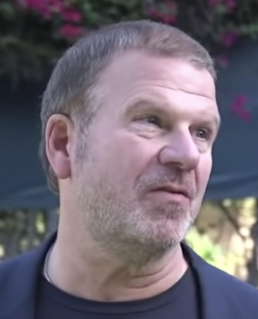A Quote by Malcolm Forbes
There are a handful of companies who understand all successful business operations come down to three basic principles; People---Product---Profit. Without top people, you cannot do much with the other two.
Related Quotes
Most entrepreneurs come up with a product, or they come up with an idea and they think they can be successful with it. But if they don't know the financial side of their business and understand credit and working capital and what it takes money-wise, you can't be successful. The product is just a product.
As much as you need to know your operations, if you don't understand the finance side and how to do the business, you're never going to be successful. So you might be the best operator or visionary, but if you don't understand the finance side... I'm successful because I know the finance side, but I also know operations; it's not an accident.
My primary early interest was in marketing and my aim was to improve its theories, methods and tools. Early on I pressed companies to adopt a consumer orientation and to be in the value creation business. I didn't pay much attention to the social responsibilities of business until later. Now I am pressing companies to address the triple bottom line: people, the planet, and profits. I found that companies were too much into short term profit maximization and they needed to invest more in sustainability thinking.
The essence of a successful business is really quite simple. It is your ability to offer a product or service that people will pay for at a price sufficiently above your costs, ideally three or four or five times your cost, thereby giving you a profit that enables you to buy and to offer more products and services.
People don't understand what fighters at the top have to go through. You know what, even half the fighters don't understand what the guys on top are going through. You're being pulled in so many directions. Contract negotiations, business opportunities, people come out of the woodwork, and it all happens when you're so young.
It's really rare for people to have a successful start-up in this industry without a breakthrough product. I'll take it a step further. It has to be a radical product. It has to be something where, when people look at it, at first they say, 'I don't get it, I don't understand it. I think it's too weird, I think it's too unusual.'
Using the phrase business ethics might imply that the ethical rules and expectations are somehow different in business than in other contexts. There really is no such thing as business ethics. There is just ethics and the challenge for people in business and every other walk in life to acknowledge and live up to basic moral principles like honesty, respect, responsibility, fairness and caring.
You can understand other people only as much as you understand yourself and only on the level of your own being. This means you can judge other people's knowledge but you cannot judge their being. You can see in them only as much as you have in yourself. But people always make the mistake of thinking they can judge other people's being. In reality, if they wish to meet and understand people of a higher development than themselves they must work with the aim of changing their being.
Get-rich-quick thinking leads to three basic errors: (1) Getting involved with things you cannot understand; (2) Risking funds you cannot afford to lose, that is, borrowed funds; and (3) Making hasty decisions. Each of these actions violates one or more biblical principles... Together they constitute a sin called greed.
The business plan should address: "How will I get customers? How will I market the product or service? Who will I target?" The principles of a business plan are pretty much the same. But after page one to two, everything is unpredictable, because costs or competition will change and you don't know how things will be received by the market. You have to be able to continually adapt. Companies that fail to adapt will die. Others are brilliant at adapting.
The more you simplify, the better people will perform. People can not understand and keep track of a long complicated set of initiatives. So you have to distill it down to one, two, or three things and use a framework they can repeat, they can repeat without thinking about, they can repeat to their friends, they can repeat at night.



































